Small Boat, Wild Sea: Print
View cart “Heart: A6 greetings card” has been added to your cart.
Artist: Francesca Ross
Rated 5.00 out of 5 based on 1 customer rating
(1 customer review)
£12.50
Print featuring original artwork by Francesca Ross.
In stock
Additional information
| Weight | 0.055 kg |
|---|---|
| Dimensions | 29.7 × 21 × .2 cm |
Reviews(1)
Add a Review
Add a Review Cancel reply
Sold out


A Silent Action: engagements with Thomas Merton
Spiritual Growth
Thomas Merton's life, especially once he had become a writer, was to a great extent one of dialogue with people who were distant, both geographically and historically. In these probing and perceptive studies, Rowan Williams looks closely at the key intellectual and spiritual relationships that emerge in Merton's writings, exploring the impact on him of thinkers as diverse as Hannah Arendt, Karl Barth, William Blake, Dietrich Bonhoeffer, Olivier Clement, Fyodor Dostoevsky, Paul Evdokimov, Gerard Manley Hopkins, Vladimir Lossky, John Henry Newman, Boris Pasternak and St John of the Cross.
£10.99
Sold out


Don’t Forgive Too Soon: Extending the Two Hands that Heal
Influences & Suggested Reading, Spiritual Growth, The Inner Journey
This is an illustrated book by Matthew Linn, Sheila Fabricant Linn and Dennis Linn. They describe it as follows: 'When we are hurt, we are tempted to either act as a passive doormat or to strike back and escalate the cycle of violence. We can avoid both of these temptations and find creative responses to hurts by moving through the five stages of forgiveness. In so doing, we discover the two hands of nonviolence: one hand that stops the person who hurts us and the other that reaches out, calms that person and offers new life. This book has healing processes so simple that children can use them."
£12.99
Sold out
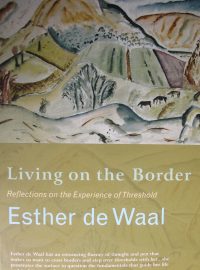

Living on the Border: Reflections on the Experience of Threshold
Celtic Studies & Spirituality, Spiritual Growth, The Inner Journey, Traditional Monasticism
There is a traditional saying of ancient wisdom: 'A threshold is a sacred thing. In some places of the world, in some traditional cultures and in monastic life, this is still remembered. It is something, however, that we often forget today. To take time to pause at a threshold - be it a place, or a moment between one action and the next - is to show reverence for the handling of space and time, and respect for those who we meet. Pausing allows us to let go of all the demands and expectations of the previous activity, and to prepare for the encounter with another. Esther de Waal explores what this ancient wisdom has to teach us about our public lives in the world today.
£12.99
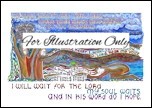

Watchman: A6 greetings card
Creativity, Spiritual Growth
Words:
My soul waits for the Lord,
More than those who watch for the morning,
More than those who watch for the morning.
Out of the depths I have cried to you, O Lord hear my voice.
With my whole heart I want to praise you, O Lord hear my voice.
If You Lord should mark iniquities
Who could stand?
Who could stand?
I will wait for the Lord, my soul waits
And in His word do I hope.
Background:
Based on Psalm 130 these words were written by Larry & Pearl Brick for a song called ‘I Will Wait’ on their 1989 album ‘See-through Servant’. Northumbria Community use the song in their Evening Prayer liturgy.
Printing and Sizing:
This item is 105mmX148mm and is printed on 300gsm gloss card stock. Each card is blank inside, has its title and copyright details on the back and is individually wrapped in cellophane with an envelope.
£2.25
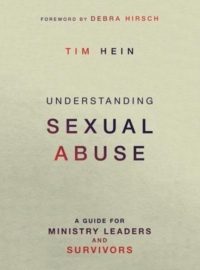
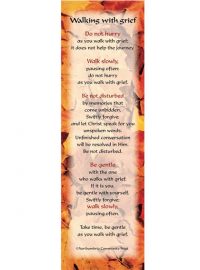

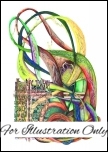


Beautiful print